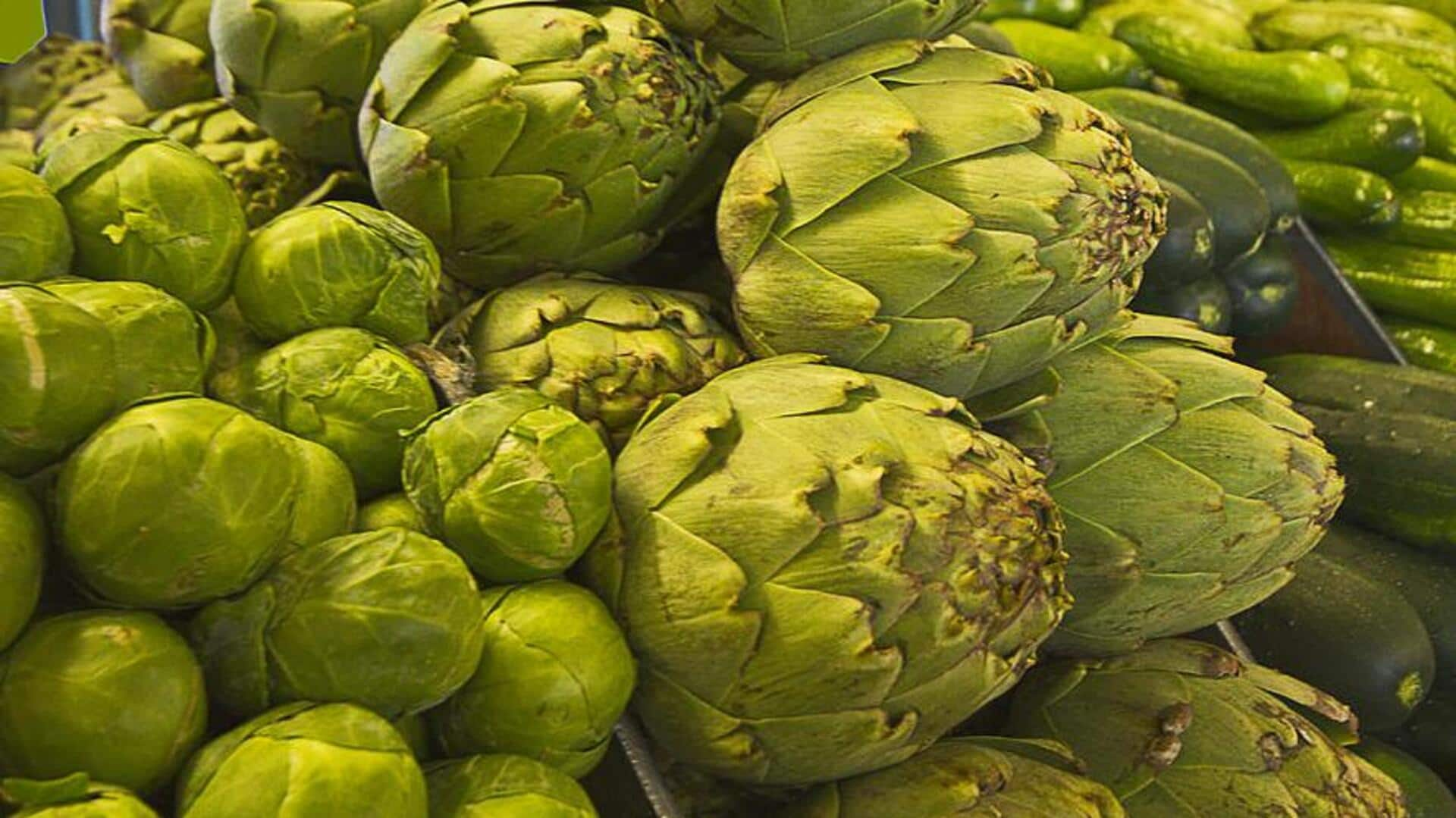
Artichoke v/s Brussels sprouts: Which has more fiber?
What's the story
When it comes to healthy veggies, artichokes and Brussels sprouts are champions!
They're packed with fiber and nutrients that keep your body humming along nicely.
Both have unique flavors and textures, which make them popular in many global cuisines.
This article explores the nutritional profiles of these two vegetables. We'll compare their fiber content, vitamins, minerals, and overall health benefits.
Fiber
Fiber content comparison
Artichokes are the undisputed champions of fiber content.
A single medium-sized artichoke packs a whopping 10 grams of dietary fiber, meeting nearly 40% of your daily recommended intake.
In contrast, a cup of cooked Brussels sprouts delivers a respectable but less impressive four grams of fiber.
So, while both veggies are fiber powerhouses, artichokes clearly take the gold medal here.
Vitamins and minerals
Vitamin and mineral match-up
Brussels sprouts are packed with vitamins K and C. A half-cup serving provides a whopping 137% of the daily recommended value for vitamin K and almost 100% for vitamin C.
Artichokes are also healthy, with plenty of vitamin C, magnesium, potassium, and iron. But they don't have as much vitamin K as Brussels sprouts.
Antioxidants
Antioxidant advantages
Both artichokes and Brussels sprouts pack a powerful punch of antioxidants, crucial for fighting inflammation and shielding against chronic diseases.
Artichokes reign supreme with one of the highest antioxidant contents among vegetables, courtesy of potent compounds like cynarin and silymarin.
Brussels sprouts trail closely behind, boasting glucosinolates recognized for their cancer-thwarting properties.
These key nutrients amplify the health-promoting prowess of these humble veggies.
Calories
Caloric consideration
Both artichokes and Brussels sprouts are low in calories. This makes them an excellent choice for anyone looking to lose weight or maintain a healthy weight.
A medium-sized artichoke contains approximately 60 calories, while a cup of cooked Brussels sprouts contains around 56 calories.
Their low calorie content, coupled with their high fiber content, makes them very filling.
Cooking
Culinary creativity tips
Roasting Brussels sprouts in olive oil until caramelized amplifies their natural sweetness, and grilling artichokes until charred unlocks a whole new world of nutty deliciousness.
Adding these veggies to your salads, pastas, or even on top of your pizza not only boosts nutrition but also takes your meals from ordinary to extraordinary.